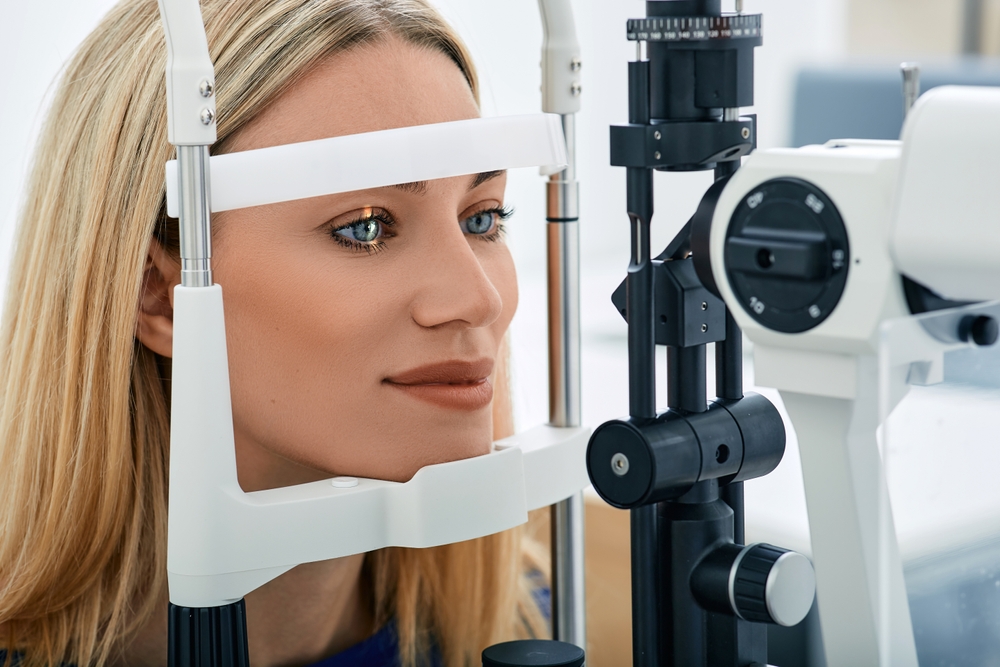
Many people underestimate the importance of regular eye exams and only see an eye doctor when they have an issue. Comprehensive eye exams are a vital part of regular eye care. These exams involve a series of tests to thoroughly evaluate your vision and the health of your eyes.
What is a Comprehensive Eye Exam?
A comprehensive eye exam is thorough evaluation of your vision and eye health. They involve a series of tests that check everything from your visual acuity to the pressure inside your eyes. These exams are not only for people who wear glasses or contact lenses. Anyone, regardless of age or physical health, should have regular comprehensive eye exams.
A comprehensive eye exam is different from a vision screening. A vision screening is a less extensive test that can identify vision issues and potential eye problems. However, it cannot diagnose the exact problem. On the other hand, a comprehensive eye exam can detect not only vision problems but also common eye diseases.
The Tests Involved in Comprehensive Eye Exams
The tests involved in a comprehensive eye exam vary, depending on your age, family history, and risk factors. However, some common tests are typically included in all comprehensive eye exams. Here are some of them.
Visual acuity tests measure how clearly you can see. This test involves reading letters on a distance chart. It is one of the most recognizable parts of an eye exam.
The cover test is another common test. The eye doctor asks you to focus on a distant object while he or she covers each of your eyes alternately. This test helps detect strabismus or other binocular vision problems that could cause eye strain or amblyopia.
Another test is the retinoscopy. In this test, the eye doctor shines a light into your eye and measures the reflection off your retina. This helps the doctor to determine your eyeglass prescription.
Common Conditions Detected During Eye Exams
Comprehensive eye exams can detect a range of eye conditions. Some of them include refractive errors, which are the most common eye problems and involve issues with how well the eye focuses light.
Other common conditions detected include glaucoma, an eye disease that damages the optic nerve and can lead to blindness if not treated early. Age-related macular degeneration, which affects the part of the retina responsible for crisp, detailed vision, can also be detected during a comprehensive eye exam.
The comprehensive eye exam can also detect diabetic retinopathy, a condition that affects people with diabetes and can cause vision loss. Cataracts, a clouding of the eye's natural lens, and presbyopia, an age-related condition that makes it difficult to focus on close objects, can also be detected.
How Often Should You Get Your Eyes Examined?
The frequency of your eye exams depends on various factors such as your age, eye health, and risk of developing eye problems. For adults, the American Optometric Association recommends a comprehensive eye exam every two years if you're aged 18 to 60 and annually if you're over 60.
However, if you have risk factors such as diabetes, high blood pressure, a family history of eye disease, or a visually demanding occupation, you may need more frequent exams. Children should also have regular eye exams to ensure normal vision development and to detect any vision problems that could affect their academic performance.
Prioritizing Your Vision and Eye Health through Regular Eye Exams
These comprehensive exams play a vital role in maintaining your overall eye health and ensuring optimal vision. They can help detect and treat a myriad of eye conditions and even reveal the onset of other health problems.
Prioritize your vision and eye health by scheduling your next comprehensive eye exam today, contact Eagle Eye Vision Center at our office in Stafford, Virginia. Please call (540) 720-0407 to book an appointment today.









